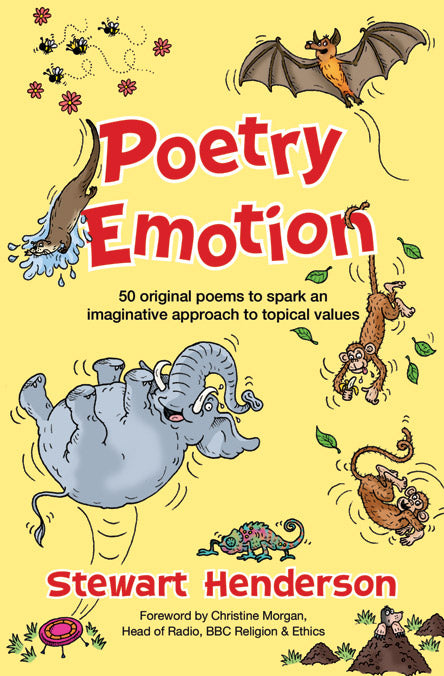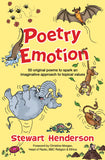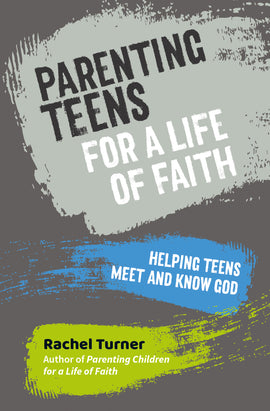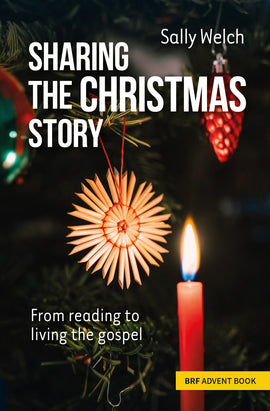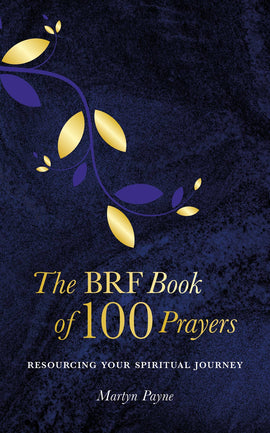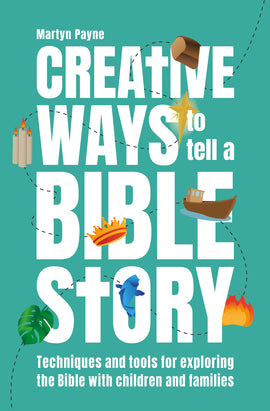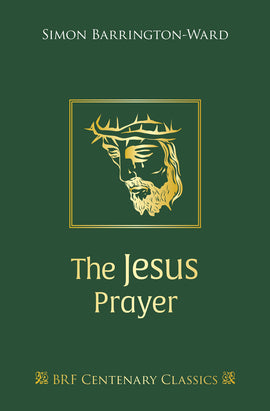Poetry Emotion: 50 original poems to spark an imaginative approach to topical values
Poetry Emotion contains a treasure trove of original poems to stimulate a child's observation and deep thinking; to affirm individuality and a sense of belonging; to express a myriad of feelings; and to develop meaningful skills for living.
Stewart visiting a school - watch video
| Title | Poetry Emotion: 50 original poems to spark an imaginative approach to topical values |
| Author | Stewart Henderson |
| Description | Poetry Emotion contains a treasure trove of original poems to stimulate a child's observation and deep thinking; to affirm individuality and a sense of belonging; to express a myriad of feelings; and to develop meaningful skills for living. The 50 poems are organised under 12 value-based topics, providing an ideal vehicle to address social and emotional values at Key Stage 2. They can be used with great effect in Collective Worship, and readily related to English, PSHCE, SEAL and RE in the classroom. The poems in each section are offered with introductory suggestions for ways in which the topics can be unpacked. Topics include:
Ideal for KS2 / P4-7 Collective Worship and SEAL. Whistling butterflies? How poetry opens the door to the soulWith the publication of his new poetry collection, poet and broadcaster Stewart Henderson shares his insights as to the roots, inspiration, and motivation for writing his new collection. In her 'memory diary' Why Be Happy When You Could Be Normal?, Whitbread Award winning novelist Jeanette Winterson turns the tables, in part, on her physically and emotionally abusive upbringing in 1960s Lancashire. Adopted by fervently religious parents, with a mother who regarded the universe as a cosmic dustbin from which 'nobody escapes', Jeanette Winterson found soul solace in reading. 'Stories about buried treasure, lost children and locked-up princesses'... and, when moving into adolescence, poetry. For her, 'a tough life' needed 'a tough language - and that is what poetry is. That is what literature offers ... It isn't a hiding place. It is a finding place'. As someone who has been a working poet for over 40 years, the content of Poetry Emotion comes from the accumulated experience of watching, and listening to, children in classrooms throughout the UK draw shapes of words and thoughts on unlined paper, in some cases in illegible pencil. In itself a privileged and heartbreaking exercise to view; the children not knowing how vulnerable they're being. Or maybe they are learning to trust their new friend. That is the thing about the finding place of poetry. It gives voice to the small, the dented, the gagged - the children perhaps intuitively recognising that that which gives you your voice helps you become. On countless occasions I have observed children, irrespective of social background or ethnicity, making friends with poetry, their expansive, pristine finding place where razzle-dazzle language becomes, to quote Jeanette Winterson again, 'a string of guiding lights'. Where you can make up your own jokes and gleefully mix words together like 'marzipan chapati' and invent whistling butterflies. As to what can be gained from Poetry Emotion for an adult? That depends on how much the adult understands what it's like to grow up in households where, as was told to me recently by one teacher, the only book is the Yellow Pages. Poetry Emotion is an attempt at a pastoral book, with the poems seeking to explain to the 'tall shadows' world of adults - who are also, in a manner, lost children - aspects of what it's like to be a child in 'Big Society' Britain today... and to give that collective child his and her voice. From the ForewordPoetry speaks in as many voices as there are people to read it, conveying everything from complex ideas to simple truths. The wonderful thing about Stewart Henderson's kind of writing is that he always manages to cover both at once. The first time I heard him perform his own poetry, in 1996, was unforgettable. I was so bowled over, I immediately asked him to write regularly for the television worship programme on which I was, at that time, Series Producer for BBC1. I had been looking for a long time for someone who could speak to a general audience, of all faiths and none, about beliefs, spiritual expression and the joys and sorrows of some of life's most profound experiences, in a way that had the capacity to engage naturally and touch deeply. Stewart knew exactly where to start and, with consummate skill and the unmistakable voice of authenticity, he took the audience on a very special journey. This collection of poems has, I believe, the same quality of travel. I read them, delighted but not surprised by their range and honesty. I could picture him in my mind's eye at one of his regular visits to the Greenbelt festival, holding a roomful of children spellbound, making them gasp with anticipation or having them squeal and laugh in a magical connection with young hearts and minds. He makes it look effortless. Don't be fooled. Writing and communicating as beautifully and naturally as this is a rare and wonderful thing. Christine Morgan |
| Details |
|
Poetry Emotion contains a treasure trove of original poems to stimulate a child's observation and deep thinking; to affirm individuality and a sense of belonging; to express a myriad of feelings; and to develop meaningful skills for living.
The 50 poems are organised under 12 value-based topics, providing an ideal vehicle to address social and emotional values at Key Stage 2. They can be used with great effect in Collective Worship, and readily related to English, PSHCE, SEAL and RE in the classroom.
The poems in each section are offered with introductory suggestions for ways in which the topics can be unpacked. Topics include:
- Whose world?
- Who am I?
- Who is my neighbour?
- What's so special about the Bible?
- It's not fair!
- Getting on and falling out
- Going for goals
- New beginnings
- Saying no to bullying
- Good to be me
- Changes
- Self awareness
- Managing feelings
- Motivation
- Social skills
Ideal for KS2 / P4-7 Collective Worship and SEAL.
Whistling butterflies? How poetry opens the door to the soul
With the publication of his new poetry collection, poet and broadcaster Stewart Henderson shares his insights as to the roots, inspiration, and motivation for writing his new collection.
In her 'memory diary' Why Be Happy When You Could Be Normal?, Whitbread Award winning novelist Jeanette Winterson turns the tables, in part, on her physically and emotionally abusive upbringing in 1960s Lancashire.
Adopted by fervently religious parents, with a mother who regarded the universe as a cosmic dustbin from which 'nobody escapes', Jeanette Winterson found soul solace in reading. 'Stories about buried treasure, lost children and locked-up princesses'... and, when moving into adolescence, poetry. For her, 'a tough life' needed 'a tough language - and that is what poetry is. That is what literature offers ... It isn't a hiding place. It is a finding place'.
As someone who has been a working poet for over 40 years, the content of Poetry Emotion comes from the accumulated experience of watching, and listening to, children in classrooms throughout the UK draw shapes of words and thoughts on unlined paper, in some cases in illegible pencil. In itself a privileged and heartbreaking exercise to view; the children not knowing how vulnerable they're being.
Or maybe they are learning to trust their new friend. That is the thing about the finding place of poetry. It gives voice to the small, the dented, the gagged - the children perhaps intuitively recognising that that which gives you your voice helps you become. On countless occasions I have observed children, irrespective of social background or ethnicity, making friends with poetry, their expansive, pristine finding place where razzle-dazzle language becomes, to quote Jeanette Winterson again, 'a string of guiding lights'. Where you can make up your own jokes and gleefully mix words together like 'marzipan chapati' and invent whistling butterflies.
As to what can be gained from Poetry Emotion for an adult? That depends on how much the adult understands what it's like to grow up in households where, as was told to me recently by one teacher, the only book is the Yellow Pages.
Poetry Emotion is an attempt at a pastoral book, with the poems seeking to explain to the 'tall shadows' world of adults - who are also, in a manner, lost children - aspects of what it's like to be a child in 'Big Society' Britain today... and to give that collective child his and her voice.
From the Foreword
Poetry speaks in as many voices as there are people to read it, conveying everything from complex ideas to simple truths. The wonderful thing about Stewart Henderson's kind of writing is that he always manages to cover both at once.
The first time I heard him perform his own poetry, in 1996, was unforgettable. I was so bowled over, I immediately asked him to write regularly for the television worship programme on which I was, at that time, Series Producer for BBC1. I had been looking for a long time for someone who could speak to a general audience, of all faiths and none, about beliefs, spiritual expression and the joys and sorrows of some of life's most profound experiences, in a way that had the capacity to engage naturally and touch deeply.
Stewart knew exactly where to start and, with consummate skill and the unmistakable voice of authenticity, he took the audience on a very special journey. This collection of poems has, I believe, the same quality of travel. I read them, delighted but not surprised by their range and honesty. I could picture him in my mind's eye at one of his regular visits to the Greenbelt festival, holding a roomful of children spellbound, making them gasp with anticipation or having them squeal and laugh in a magical connection with young hearts and minds. He makes it look effortless. Don't be fooled. Writing and communicating as beautifully and naturally as this is a rare and wonderful thing.
Christine Morgan
Head of Radio, BBC Religion & Ethics
From REtoday - Spring 2013
This book, intended for use with children aged 7-11, contains poems on a variety of themes linked to social and emotional values. The first theme is entitled 'Barnabas RE Day Themes', taking up about a third of the book. These are followed by what are called 'General Themes' and 'Emotional Skills'.
The poems in the first section would not, however, be limited to use in RE lessons, collective worship or a Barnabas RE Day, as it contains poems such as 'I've Got to Look Right', a poem about the perceived importance of fitting in and how this feels when not being true to oneself. This is surely a theme which is as relevant to PSHCE as RE.
Each section is split into topics. In 'Barnabas RE Day Themes' these include 'Whose world?', and 'What's so special about the Bible?' The 'General Themes' include 'Going for goals!' and 'Saying 'no' to bullying'. 'Emotional Skills' include 'Self-awareness' and 'Motivation'. A general introduction to each theme explains the personal skills the poems are designed to help develop, while a more specific introduction to each topic gives some background to the poems and suggestions for their use. Stewart Henderson makes it clear that the teacher will know how best to use each poem with any particular set of children and their particular context.
There are poems about the death of a pet, visits, school life and friendship - themes which the majority of children will relate to. There are also poems on the things adults say that don't quite make sense to children - these may cause reflection from the teacher as much as the children!
The range of poems in this book could be used in a variety of contexts. It would make a valuable addition to any KS2 teacher's bookshelf.
From The Church Times - June 2012
Top of the list, on the basis of entertainment alone, would be Poetry Emotion, by Stewart Henderson. What Michael Morpurgo has done for children's fiction, Henderson has done for poetry.
As a regular broadcaster on BBC Radio 4, the writer has something of a national reputation. His poems are simple, unintimidating to children, and characterised by a delightful, icono clastic sense of humour. Teachers, granddads, best friends, and even enemies are teased, but always gently.
Inspired by a previous volume of his, one of my students began his poem on his goldfish 'Hail to thee, wet pet!' The style is recognisably Henderson's. At the heart of this book is compassion for those who find life hard and challenging.
Adolescents, take note, and take heart. This slim volume may well be just the tonic you need to get through another tricky day. And he knows that Converse All Stars are shoes, even if your dad doesn't.
From The Good Bookstall - June 2012
This is an excellent little collection of 50 original poems to be used in a classroom or school setting that address a wide range of themes and issues from everyday life and emotions to slightly more topical issues like disability, being on benefits and bullying.
The poems really are excellent (my personal favourites are Zoo Trip and Friend in Need) and the teachers guidance notes that go with them really help to contextualise the situation and subjects with which these poems can be used. An excellent tool for a hard pressed teacher who wants something short but interesting to use for assembly, worship or even in PHSE or other subjects lessons.
Some of the poems in here would also work really well for a range of outside school activities and youth & children's leaders and even ministers would not go too far amiss with using this book either.
Reviewed by Melanie Carroll

